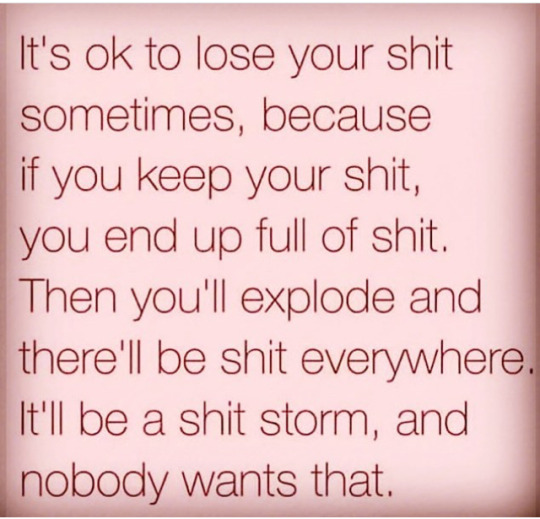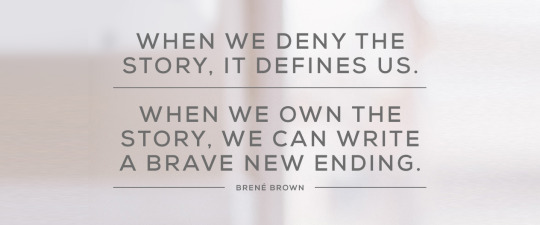Photo

#mental health#recovery#self care#self love#stay strong#depression#anxiety#anorexia#eating disoder things#gratitude#life quotes#quotes daily
44 notes
·
View notes
Text
10 reasons why I AM good enough (as I am).
1. I can make others smile and am an overall positive person. I try to find something positive in every situation, no matter how dark it seems on the outside.
2. I ask a LOT of questions when I’m trying to learn something new. It’s not because I’m stupid, it’s just because I’m insecure, and like to be certain that I’m doing things the ‘right’ way (i.e., I’m a hopeless perfectionist)!
3. My life becomes a mess sometimes, but I’ve learned how to deal with this and accept help when I need it.
4. I accept my mistakes and use them as a chance to become better.
5. I am a minimalist: a very low-maintenance, clean person who has a small carbon footprint.
6. I am passionate about helping others and plan to go into a helping profession.
7. I am very literal and straightforward– even though this also makes me more gullible than most.
8. I have lots of coping skills in my metaphorical “basket”, such as using daily affirmations (i.e., positive self-talk), mindfulness, and grounding techniques.
Some of my affirmations:
a. I am worthy.
b. I am enough.
c. I let go of negative thoughts and feelings about myself.
d. This too shall pass.
e. One day at a time.
f. Stay strong.
g. Without struggle there is no progress.
h. I am competent and trust in my inner greatness.
i. I see the best in people and accept others for who they are.
9. Even though I’ve acquired a lot of physical and psychological ‘wounds’ over the years, I have a lot of courage and a high tolerance for pain (emotional and/or physical) as a result.
10. I recognize my flaws and am constantly trying to self-improve. For example, being a good listener is sometimes hard for me because my own internal dialogue can get really loud when I’m stressed. But I am truly passionate about helping others and part of this package entails being a good listener, so I am always in the process of improving my listening skills.
#mental health#mental illness#affirmyourself#stay smiling#stay strong#one day at a time#recovery#depression#anxiety#anorexia#anorexia recovery#eating disorder#this too shall pass#spoonie#writer#blogger#gratitude#worthy#positivity#perfectionist#grad school#positive thoughts#self love#self care#mindfulness#journaling#progress#change#good vibes#peace and love
8 notes
·
View notes
Photo

SPEAK YOUR TRUTH
Speaking your truth means being honest to yourself and others about what you think or feel. When I speak my truth to others though, it sometimes makes me feel sad, embarrassed and shameful, because I am very self-judgemental about my thoughts and feelings. But I have also learned over the years to own my story (i.e., not being afraid to speak up), because as Brene Brown says, “when we own our story, we can write a brave new ending.” Some of the truths about my story are ugly and shameful, because anorexia, like any addiction, requires a fair bit of deception and lying in order to be kept ‘alive’. So, whenever I speak some of these ‘truths’ to friends or family or mental health professionals, it makes me want to crawl inside a hole and never come out.
Barriers to speaking my truth include:
· Fear of offending the other person, for example if I were to say to another person that they could afford to lose a bit of weight, they may feel offended, even if I was just trying to be truthful.
· Fear of being judged by the other person, for example if I make a mistake labelling prescriptions or counting medications at work, I worry that the pharmacist is judging me as being lazy, sloppy, or just too slow to be of any use to her.
· Not wanting the other person to feel that I’m negative, for example, if I continuously talk about how unhappy I am with my weight and complain about the fact that I need to keep gaining weight since I’m still underweight, the other person may feel that I’m very negative or pessimistic (since I am not choosing to use a more positive statement such as “I’m restoring weight” or “my body needs this extra food as fuel to repair the damage that my anorexia has done to my body over the years”), or other positive statements about how restoring weight is helping me to function better.
· Feeling futile because speaking your truth hasn’t gotten results from anyone in the past. If I voice my opinion or feelings and I get shut down, then next time I will feel even more afraid and apprehensive about being open and honest with others.
· Fear of reprisal (i.e., fear of being hurt/punished by others), such as being shunned, ridiculed, or verbally attacked. If I am in a period of my life where my weight is higher (such as when I have just finished a course of inpatient treatment, I may feel fearful that people will make fun of me.
I have learned that honesty is the best policy when speaking about my story to others. When mental illness, whether that be depression, anxiety, or eating disorders, is exposed it is easier to obliterate. For example, recently my dad asked me if I can promise to him that I will get to a healthy weight and start eating 2500 calories/day, and instead of just saying ‘yes’ so that I could give him some relief in that moment, I told him honestly that I might be able to increase my intake on some days, but on others it just won’t be possible, because I feel very stuck at the moment in regards to my anorexia, so I am very ambivalent about gaining weight. And even though my dad did get a bit upset, he also told me that he appreciated the fact that I spoke truthfully to him.
#mental health#mindfulness#recovery#spoonie#self care#anorexia#ed recovery#anorexia recovery#depression#anxiety#blogger#mental illness#growth#journaling#fighter#positive thoughts#this too will pass
5 notes
·
View notes
Quote
Our weakness lies in giving up. The most certain way to succeed is always to try just one more time
Chelsea Handler
#quote of the day#inspiration#motivation#recovery#mental illness#self care#self love#anorexia#depression#anxiety#ed recovery#anorexia recovery#keep trying#faith#never give up#hope#life quotes#inspirational quotes#one day at a time
7 notes
·
View notes
Quote
Some of us are in indeed attached, however ambivalently, to our disorders, and this is one of the reasons why: they are states of extremes, and they create extreme emotions in us. We get used to the thrills. We welcome them sometimes, and sometimes we even court them. We go off our meds; we do drugs that we know will exacerbate our highs; we drink to exacerbate both highs and lows; we get involved with people who feed into our illness; we don’t keep up with our mental health appointments; we don’t do the things that help keep our symptoms at bay; we rely too heavily on other people for things we could do ourselves, or blame things on our illness that are really our responsibility, and then we refuse help when we most need it; we do all sorts of things to destabilize our lives. And then, when we crash, we wonder what happened—and then we do it again.
Marya Hornbacher
#recovery#depression#anxiety#spoonie#blogger#ed recovery#anorexia recovery#self care#mental illness#mental health recovery#quote of the day#life quotes#writer#relatable#big fan#one day at a time
11 notes
·
View notes
Quote
Madness strips you of memory and leaves you scrabbling around on the floor of your brain for the snatches and snippets of what happened, what was said, and when. I spend these two years caught in the revolving door of madness, going in and out of the hospital seven times, traveling from my bed at home to a bed on a locked ward, the weird world of the ward becoming more familiar to me than the one outside. This is the best I can do to piece the scattered memories together, to give some semblance of continuous time, to fill the hole in my life that madness made and will not repair.
Marya Hornbacher
#recovery#depression#anxiety#anorexia#ed recovery#anorexia recovery#blogger#body image#positivity#self care#self love#life quotes#quote of the day#quotes#inspiration#motivation#mental illness#mental health#spoonie#gratitude#writer#mental health recovery
8 notes
·
View notes
Text
I like to self-soothe by:
·Watching one of my favourite TV shows.
·Practicing mindfulness by avoiding multitasking and focusing on being present in the moment. I pay attention to the sights, scents, and sounds around me.
·Grounding myself by doing creative writing or journaling.
·Reaching out to others and spending time with friends.
·Colouring, reading, playing scrabble.
·Zooming out. I ask myself: Why am I worrying about this now? Will this matter next week, or next month, or next year? What is the bigger picture here? How can I save my emotional energy right now?
#mental health#recovery#positivity#blogger#spoonie#anxiety#mental illness#depression#anorexia#anorexia recovery#ed recovery#self love#self care#pro recovery#eating disorder things#eating disorder#body image#body positivity#moving on#hospital#growth#treatment
10 notes
·
View notes
Text
Thoughts about recovery:
“To every thing there is a season and a time to every purpose under the heaven. A time to be born and a time to die... A time to weep and a time to laugh; a time to mourn and a time to dance.”
The stages of recovery
Stage 1:
I walk down the street. There is a deep hole in the sidewalk. I fall in. I am lost. I am helpless. It isn’t my fault. It takes forever to find a way out.
Stage 2:
I walk down the same street. There is a deep hole in the sidewalk. I pretend I don’t see it. I fall in again. I can’t believe I am in this same place. But it isn’t my fault. It still takes a long time to get out.
Stage 3:
I walk down the same street. There is a deep hole in the sidewalk. I see it is there. I fall in…it’s a habit…but my eyes are open. I know where I am. It is my fault. I get out immediately.
Stage 4:
I walk down the same street. There is a deep hole in the sidewalk. I walk around it.
Stage 5:
I walk down a different street.
#mental health#recovery#positivity#life quotes#quoteoftheday#blogger#anorexia#depression#anxiety#spoonie#mental illness#anorexia recovery#ed recovery#self love#self care#pro recovery#eating disorder things#eating disorder#body image#body positivity#moving on#hospital#growth
115 notes
·
View notes